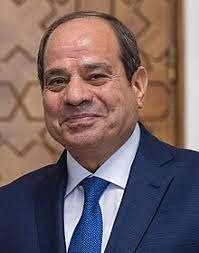Egypt 2023: Triumph, Controversy, Economic Realities
By: Vennisa Owusu-Barfi
President Abdel Fattah el-Sisi
Abdel Fattah el-Sisi has just secured a sweeping victory with 89.6% of the votes in Egypt's recent presidential elections. However, beneath the surface of triumph lies a narrative steeped in controversy and political intricacies.
El-Sisi's political journey, beginning with the 2013 coup, has been marked by allegations of authoritarian rule and electoral irregularities, notably in the 2018 elections. As the nation approached the 2023 polls, concerns over political pluralism and opposition participation lingered.
Source | France 24
Economic Turmoil: A Persistent Undercurrent
Against the backdrop of political dynamics, Egypt grappled with a deepening economic crisis. Soaring inflation and a foreign currency shortage, exacerbated by global events like the Russian invasion of Ukraine, cast shadows over the electoral landscape, prompting questions about the government's economic policies.
The field of candidates faced its share of challenges, with withdrawals and obstacles shaping the narrative. Notable figures like Gameela Ismail withdrew, and Ahmed Tantawi confronted hacking and harassment, underscoring the complexities of opposition participation.
Skepticism and Allegations: Post-Election Atmosphere
Official results declaring a 66.8% voter turnout were met with skepticism from the opposition. Reports of financial incentives for voters and allegations of coercion by security forces added layers of controversy, raising questions about the election's legitimacy.
Cairo, Capital of Egypt
As Egypt enters a new phase with el-Sisi's third term, economic challenges persist. The new administrative capital stands as both a symbol of progress and a focal point for debates on economic priorities, encapsulating the delicate balance between triumph and the pressing issues that lie ahead.


